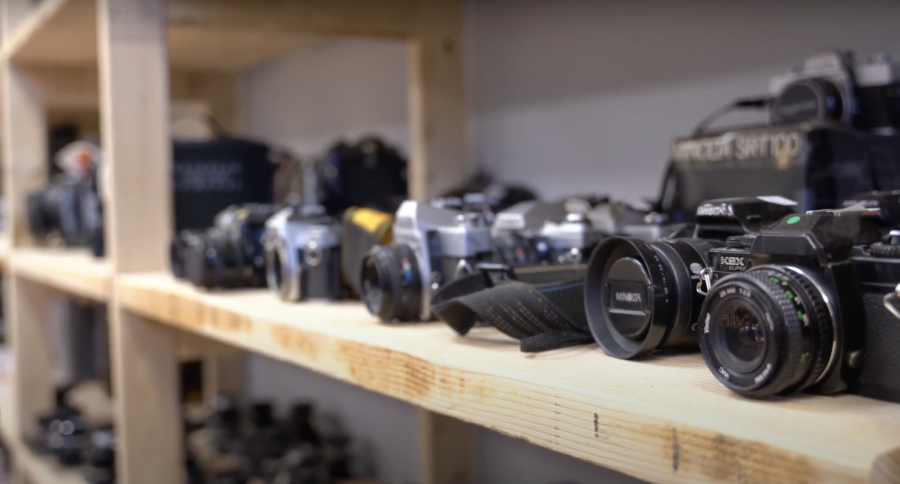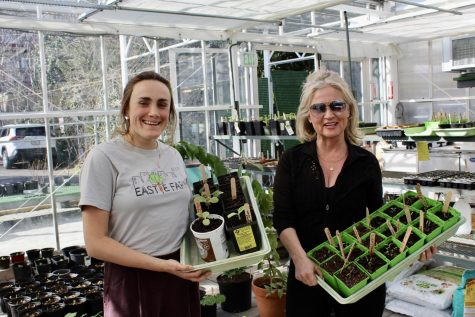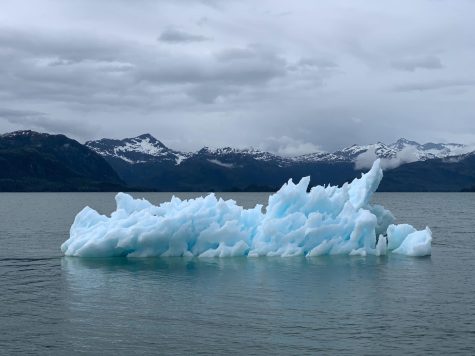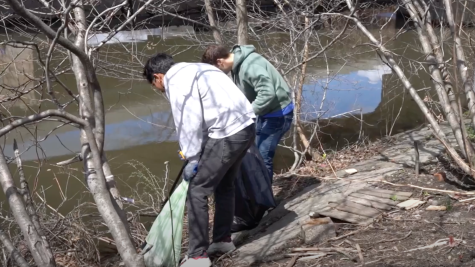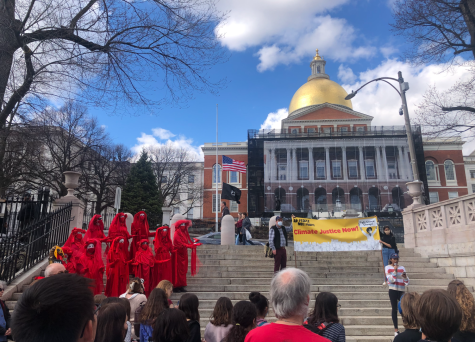A film roll’s footprint: Boston photographers call for more sustainability in traditional photography
Photo: Alyssa Fell
Film cameras at CatLABS, an analog camera store and film processing lab in Jamaica Plain.
The traditional art of analog photography, or film photography, is preserved due to a niche following and passionate community. Despite the advancement to digital cameras, individuals still shoot and develop film for its grainy aesthetic, the limited number of shots per roll and the physical experience of making a photograph.
With the revival of the art and increasing attention to shooting on film, the sustainability of the art has come into question. The process of film development and printmaking entails extreme water usage, harmful chemicals and the prevalence of disposable cameras that cause unnecessary waste.
“The process is really wasteful from start to finish in terms of getting the film, shooting the film, or the chemicals themselves are really wasteful and then you have to dispose of everything afterward,” said Josh Burns, a fourth-year Northeastern student with a hobby of film photography. “The industry overall, it definitely concerns me, especially as more people seem to be getting involved in film photography.”
Information from a U.S. Environmental Protection Agency 1997 preliminary data study showed photographic processes use up to 1,000 gallons of wastewater per day. Since then, the process has largely remained the same. But some photographers, like Omer Hecht, are pushing for ways to minimize water usage to make film photography a more sustainable art.
“Film processing requires water – no way about it,” said Hecht, who owns CatLABS, a camera store and film processing lab in Jamaica Plain. “It has to have water, but does it need an infinite amount of water? Or can you do it with a tiny amount of water? And the answer is you can do it with a tiny amount of water.”
However, an added difficulty is that the chemicals used during photographic processes are largely unsustainable.
“It would help if the industry would create some more advances in terms of more sustainable chemicals,” said Northeastern assistant teaching professor and photographer Dana Mueller. “I don’t know what that would mean, but I think we all would embrace it.”

